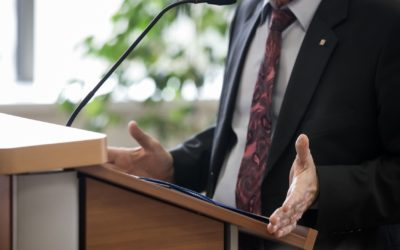#52 Casino Executive ©Copyright 1999, all rights reserved worldwide. Gambling and the Law® is a registered trademark of Professor I. Nelson Rose, Whittier Law School, Costa Mesa, CA.
The federal 9th Circuit Court of Appeals has ruled that when it comes to taxes, both casinos and their employees are winners.
The case involved the dual questions of whether casinos could deduct the cost of free meals they give their employees, and whether those employees have to pay income taxes on those meals.
The Court has now settled the question, at least for the western United States, including Nevada. If a casino and its lawyers set up the program correctly, the casino may deduct 100% of the expenses involved with supplying its employees with free meals. As a nice corollary, the company can offer prospective workers the fringe benefit of two free meals every day they work, without the employees having to report the food as income.
One of the most fundamental rules of the federal income tax system is that everything any American receives in any way is, theoretically, income that may be taxed. There obviously have to be lots of exceptions. People would not put up with paying taxes on personal Christmas and Chanukah gifts.
Fundamental fairness requires that businesses only pay taxes on their actual income, not their total sales. A grocery store that receives a dollar by selling a state lottery ticket would quickly go broke if it had to pay taxes on that dollar, rather than on the few cents it actually gets to keep.
Any individual or business that makes money has expenses as well. Policy-makers are constantly struggling with the question of which expenses should be deductible when calculating income, and which should not.
In theory, if a taxpayer — say a salesperson — takes a prospective client out to lunch, the meal should be considered a legitimate cost of doing business. Particularly if the sale is made, the salesperson should be able to deduct the meal expense to figure out how much he or she actually made.
The problem is that any tax deduction can be misused. Is it really a necessary part of business for executives to have three-martini lunches every day?
In 1986, Congress became concerned that high-income taxpayers were taking business deductions for meals and entertainment which were really part of their personal living expenses. So Congress put a cap on the amount of these deductions; today only 50% of the costs of business meals and entertainment may be deducted.
But there are some important exceptions. Some companies supply meals to their employees because they need to have these workers present at all times in case of emergencies. Other companies are located so far from even the nearest restaurant that employees could not get back before their work break was over.
Congress declared that a company that provides meals to its employees for its own convenience can deduct 100% of the cost of those meals.
What about other meals and other employees? In 1998 Congress amended the law so that a company can deduct the cost of all meals given to all its employees, if more than half of the employees are being fed for the convenience of the employer.
The recent federal case arose when the IRS decided that the Boyd Gaming Corporation’s casinos were providing employees free meals that were not for the convenience of the casino. The IRS believed the Stardust, California, Fremont and Sam’s Town were giving free food simply to remain competitive with other casinos in attracting and keeping good workers.
The IRS also argued that meals, to be deductible, must be linked to an employee’s specific duties. The 9th Circuit found that would be “virtually impossible to satisfy; only restaurant critics and dieticians could meet such a test.”
Further, the IRS regulations themselves state that meals furnished to employees who cannot leave the premises because there are insufficient eating facilities in the vicinity are provided for the “convenience of the employer.” Thus, “we can discern no logical distinction between workers isolated by geography and those isolated by employer policy.”
Boyd required its employees to stay in the casino during the entire eight hours of their work shifts. Naturally, the company realized that it had to supply meals. But the IRS argued that there was no good reason for the “stay-on-premises” policy. The Tax Court agreed.
The 9th Circuit reversed, holding it was not up to government officials “to second guess Boyd’s business judgment.” So long as the company had “adequate evidence of legitimate business reasons” to “support its closed campus policy,” the meals would be 100% deductible.
The IRS argued that employees could eat in restaurants in the casino. It ignored the fact that the restaurants were reserved for patrons, who might find uniformed employees … distracting. “A cocktail waitress, for example, wears a very short black dress.”
Boyd put on evidence showing that many employees handle large amounts of cash and gaming chips, and that checking workers in and out for meals would be costly and disruptive.
Boyd’s most interesting argument was “that the ‘stay-on-premises’ requirement allows it to maintain tight control over its workforce, thereby reducing the chances of employees succumbing to the distractions and temptations of the ‘festive’ Las Vegas atmosphere.”
There are not many businesses that would admit that if their employees visit the competition during their workday, they might not return to work.
[Professor Rose can be reached at his web site: www.GamblingAndTheLaw.com]END





0 Comments